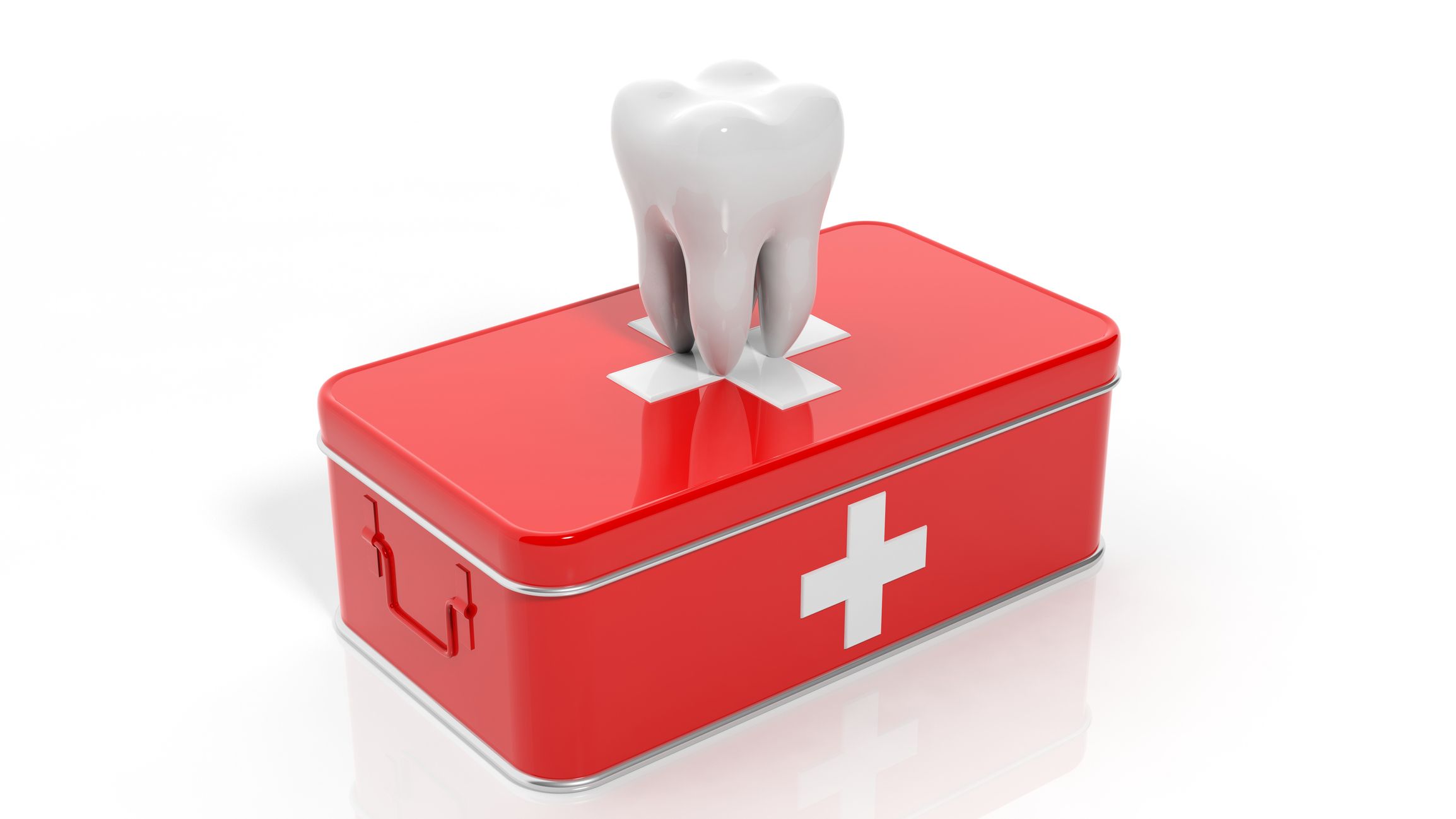No one plans for a dental emergency, but it’s always better to be prepared. Knowing what to do in those first few moments can make a huge difference. Quick thinking and the right action can help you save your tooth, prevent further damage, and make treatment easier later on. A little knowledge now can protect your smile later.

Knocked-Out Tooth
For many reasons, having a tooth get knocked out of your mouth can be scary. A missing tooth can damage your self-esteem and the efficiency of your teeth. Your dentist will be able to replace a tooth that falls out because of dental trauma, as long as you’re prepared.
We have a narrow window of time to get your tooth back in place. From the time of the initial injury, you have about an hour to get to an emergency dentist.
After finding your tooth, be sure to only pick it up by the crown. The delicate nerves make up the other end of the tooth, which you can easily damage if you aren’t careful. Damaging the nerves can make it difficult for your dentist to reattach your tooth.
As you make your way to the dentist, you need to carry your tooth carefully. To do this, you can try to place your tooth back in its socket. Don’t force the tooth into its socket because you can damage the nerves. Alternatively, you can keep the tooth in your mouth between your cheek and gums, or place it in a cup of milk or your own saliva.
Soft Tissue Injury
A soft tissue injury means you’ve cut, scraped, or punctured the soft parts of your mouth, like your gums, tongue, cheeks, or lips. These kinds of injuries can happen in lots of ways, like falling down, biting something hard, or even getting accidentally bumped during sports.
Because the mouth has a lot of blood flow, these injuries can bleed a lot and are prone to infection. That’s why it’s important to see a dentist or doctor right away. They may need to give you stitches to help the wound heal neatly and prescribe antibiotics to prevent infection.
If this happens to you, stay calm. Gently press a clean cloth or piece of gauze against the hurt area and keep steady pressure. This will help slow down the bleeding while you get to the dentist or emergency room. Avoid eating or drinking anything until a professional can take a look.
Don’t play with the injury with your fingers or tongue because it can make it worse. Getting help quickly is the best way to make sure your mouth heals safely and completely.
Toothache
When your tooth hurts, it’s like an alarm going off in your mouth. It’s your body’s way of saying something needs attention. Even if the pain is mild or only happens once in a while, you shouldn’t just brush it off.
Sometimes the cause is no big deal. Maybe you have a sensitive tooth, some food stuck in your gums, or you’ve been grinding your teeth at night. But tooth pain can signal a deeper issue, like a cavity that’s reached the nerve or an infection that needs treatment ASAP.
It’s definitely time to call your dentist if the pain is sharp, constant, or so strong that it keeps you from sleeping or eating. Pain like this often means there’s an infection inside your tooth or gums. Infections don’t go away on their own. In fact, they can get worse and spread to other areas like your jaw, neck, or even your bloodstream. In rare cases, this can become very serious, so it’s important to quickly get care.
Other signs that you might have an infection include swollen or red gums, a small bump on your gums that might leak fluid, a bad taste in your mouth, or even a fever. If you have pain along with any of these symptoms, don’t wait to reach out to your dentist or doctor right away.
Until you can see a professional, you can do a few things to help manage the discomfort:
- Rinse your mouth with warm salt water to help reduce bacteria and soothe irritation
- You can also hold a cold pack or ice wrapped in a cloth against your cheek to lessen swelling and numb the area a bit
- Avoid very hot, cold, or sugary foods and drinks, since these can sometimes make the pain worse
Remember, these tips are only temporary. They can help you feel a little better, but they won’t fix the real problem. The only way to get lasting relief and protect your health is to see a dentist. Dr. Mark Reichley can figure out what’s really going on and provide the right treatment to get your smile back on track. Give us a call at 757-216-9914 or request an appointment online today.

